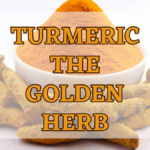Nutritional Deficiencies: Are You Missing These Key Nutrients?
You eat a balanced diet, stay active, and maybe even take a daily multivitamin—so you’re covered nutritionally, right? Not necessarily. Even the healthiest eaters can suffer from hidden nutritional deficiencies. These gaps in essential vitamins and minerals often go unnoticed but can lead to fatigue, weakened immunity, brain fog, and long-term health issues.
In this post, we’ll uncover the most common hidden nutritional deficiencies, explain why they happen, and share practical tips to fill those gaps naturally. Whether you’re a fitness enthusiast, busy professional, or just trying to feel your best, this guide will help you spot the signs and take action.

Why Do Hidden Nutritional Deficiencies Happen?
Modern diets, stress, and lifestyle factors make it surprisingly easy to miss key nutrients. Here are some reasons why:
- Processed Foods: Even “healthy” packaged foods often lack essential vitamins and minerals.
- Soil Depletion: Modern farming practices have reduced nutrient levels in fruits and vegetables.
- Digestive Issues: Conditions like IBS or low stomach acid can impair nutrient absorption.
- Restrictive Diets: Vegan, keto, or gluten-free diets may unintentionally cut out vital nutrients.
- Chronic Stress: High cortisol levels deplete magnesium, B vitamins, and zinc.
Now, let’s dive into the most commonly overlooked deficiencies and how to fix them.
1. Magnesium: The “Relaxation Mineral” You’re Probably Low On
Signs You’re Deficient: Muscle cramps, insomnia, anxiety, fatigue.
Magnesium is involved in over 300 biochemical reactions, yet nearly 50% of people don’t get enough. Stress, caffeine, and alcohol deplete it further.
Tips to Boost Magnesium:
- Eat more leafy greens, nuts, seeds, and dark chocolate.
- Try an Epsom salt bath (magnesium absorbs through the skin).
- Consider a high-quality supplement (like magnesium glycinate).
2. Vitamin D: The Sunshine Vitamin (Even in Sunny Climates)
Signs You’re Deficient: Low immunity, bone pain, seasonal depression.
Despite its name, vitamin D acts like a hormone and is crucial for immunity and mood. Yet, 1 billion people worldwide are deficient—even those in sunny areas.
Tips to Get Enough Vitamin D:
- Spend 10–30 minutes in midday sun (without sunscreen).
- Eat fatty fish, egg yolks, and fortified foods.
- Test your levels and supplement with D3 + K2 for better absorption.
3. Omega-3s: The Brain-Boosting Fats Most Diets Lack
Signs You’re Deficient: Dry skin, poor memory, joint pain, inflammation.
While omega-6 fats (from processed oils) are abundant, omega-3s are often missing. These fats are vital for brain health, heart function, and reducing inflammation.
Video credits
Tips to Increase Omega-3s:
- Eat fatty fish (salmon, sardines) 2–3 times weekly.
- Add flaxseeds, chia seeds, or walnuts to meals.
- Consider a high-quality fish oil or algae-based supplement.
4. Iron: Not Just for Vegetarians
Signs You’re Deficient: Fatigue, pale skin, brittle nails, shortness of breath.
Iron deficiency is the most common nutrient deficiency globally, especially in women and vegetarians. But even meat-eaters can struggle with absorption.
Tips to Optimize Iron Levels:
- Pair iron-rich foods (spinach, lentils, red meat) with vitamin C (bell peppers, citrus) to boost absorption.
- Avoid coffee/tea with meals (they inhibit iron uptake).
- Get tested if you suspect a deficiency—don’t self-supplement without guidance.
5. B Vitamins: The Energy Boosters You Might Be Missing
Signs You’re Deficient: Low energy, brain fog, tingling hands/feet.
B vitamins (especially B12, folate, and B6) are critical for energy, nerve function, and metabolism. Vegans, seniors, and those on acid-reducing meds are at higher risk.
Tips to Get Enough B Vitamins:
- Eat eggs, meat, legumes, and leafy greens.
- For B12 (only found in animal foods), consider a sublingual supplement if vegan.
- Choose methylated forms (like methylfolate) if you have a MTHFR gene mutation.
6. Zinc: The Immune Defender Often Overlooked
Signs You’re Deficient: Frequent colds, slow wound healing, loss of taste/smell.
Zinc is essential for immunity and metabolism, but soil depletion and high sugar intake can lead to deficiency.
Tips to Increase Zinc:
- Eat oysters, pumpkin seeds, beef, and chickpeas.
- Avoid excessive alcohol and sugar, which deplete zinc.
- Supplement short-term during illness (15–30 mg/day).
How to Test for Hidden Deficiencies
While symptoms can hint at deficiencies, testing is the best way to confirm:
- Blood tests (for iron, vitamin D, B12, etc.)
- Hair mineral analysis (for magnesium, zinc)
- Functional medicine tests (like SpectraCell for intracellular nutrients)
Ask your doctor or use at-home test kits from reputable companies.
Final Thoughts: Small Changes, Big Impact
Hidden nutritional deficiencies can sneak up on anyone, but the good news? Small dietary tweaks and targeted supplements can make a huge difference in how you feel.
Key Takeaways:
- Prioritize whole, nutrient-dense foods over processed options.
- Consider testing if you have chronic symptoms.
- Pair nutrients wisely (e.g., vitamin C with iron) for better absorption.
Now, I’d love to hear from you! Have you ever discovered a hidden deficiency? What helped you fix it? Share your story in the comments—let’s learn from each other!**
And if you found this post helpful, share it with a friend who might need it. For more wellness tips, subscribe to our newsletter below!











